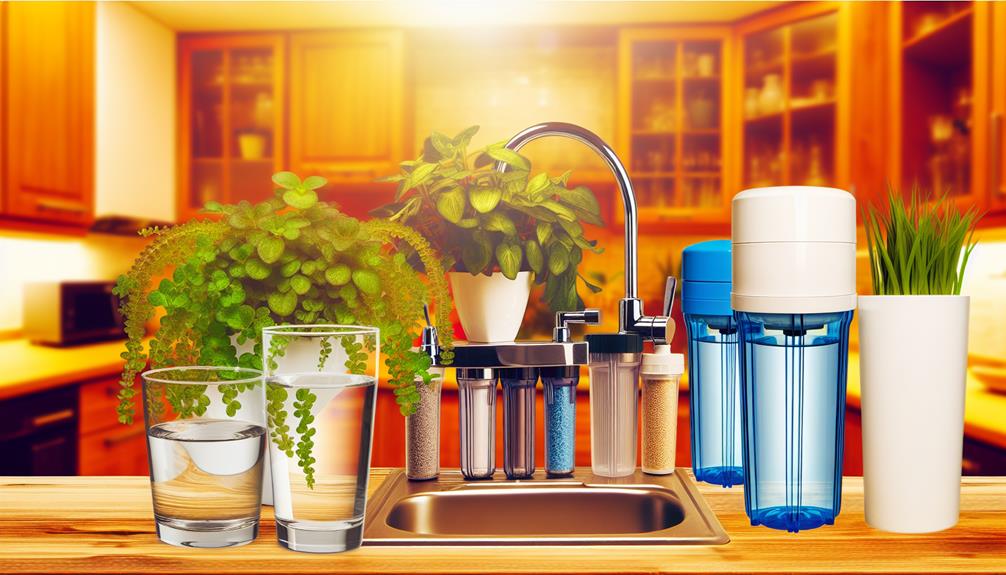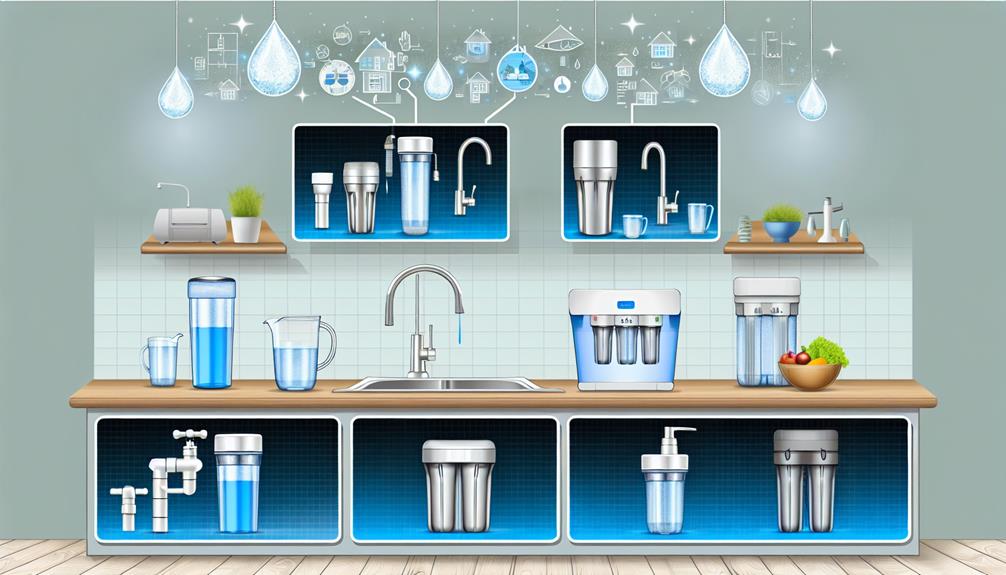Imagine the gentle hum of a high-capacity reverse osmosis system, steadily converting brackish water into the purest form of H2O, a vital heartbeat in the sprawling body of an industrial complex.
You're likely familiar with the importance of having a reliable RO filter to ensure your operations remain untainted by impurities, but finding the right provider can be as complex as the filtration process itself.
With a market flooded by options, it's essential to sift through the claims and specifications to unearth the true leaders in the field. As you seek to equip your facility with the most efficient and durable reverse osmosis system, understanding the nuances of what makes a top provider stand out is crucial.
The following guide offers a glimpse into the elite circle of industrial RO filter providers, revealing insights that could be the difference between a choice that simply filters and one that transforms your water management strategy.
Evaluating Industrial RO Systems
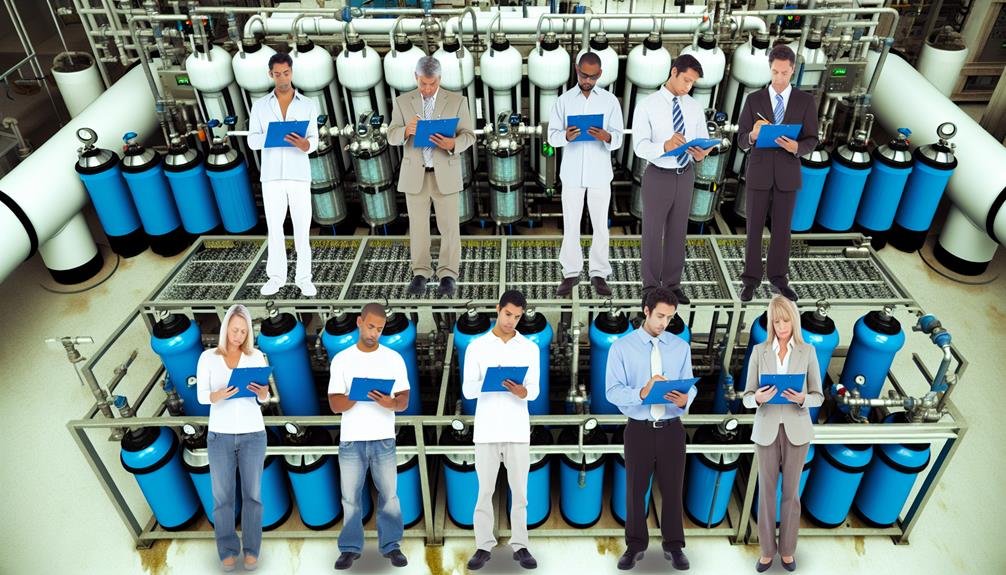
When assessing industrial reverse osmosis (RO) systems, it's crucial to consider factors such as permeate flow rate, rejection rate, and system recovery to ensure optimal performance and cost-efficiency. You must delve into the technical specifications to determine if the system meets your production needs.
Permeate flow rate is indicative of how much filtered water the system produces and is typically measured in gallons per day (GPD) or cubic meters per hour (m³/h). A high rejection rate, expressed as a percentage, signifies the system's efficacy in removing contaminants, which directly impacts product quality.
System recovery, the ratio of permeate to feed water, should align with your operational goals to maximize efficiency and reduce waste. Contaminant levels in your source water dictate the pre-treatment requirements and the RO membrane selection, ensuring longevity and consistent performance.
You also can't overlook system scalability—anticipate future demands and assess whether the system can be upgraded or expanded without significant downtime or cost.
In your analysis, weigh the balance between initial investment and long-term operational costs, considering energy consumption, membrane replacement frequency, and maintenance needs. Precision in evaluating these technical parameters ensures you select an RO system tailored to your industrial requirements, offering reliability and economic advantage.
Top 5 RO Filter Manufacturers
Understanding the landscape of industrial RO filter manufacturers is essential, as the selection of a reputable and technologically advanced producer can significantly influence the efficiency and reliability of your water treatment processes.
Here's a detailed look at the top 5 RO filter manufacturers, focusing on their global distribution and pricing strategies:
- Dow Water & Process Solutions
- *Global Reach*: Extensive distribution network across multiple continents.
- *Innovative Edge*: Advanced membrane technology.
- *Pricing*: Competitive pricing with a focus on long-term value.
- GE Water & Process Technologies
- *Global Reach*: Strong presence in over 100 countries.
- *Technical Leadership*: Comprehensive industrial water treatment solutions.
- *Pricing*: Tailored pricing strategies to fit various market segments.
- Hydranautics – A Nitto Group Company
- *Global Reach*: Robust distribution channels worldwide.
- *Product Range*: Wide array of membrane types for diverse applications.
- *Pricing*: Balances cost-efficiency with technological advancements.
- Toray Industries
- *Global Reach*: Strategic locations to serve international markets.
- *Research and Development*: Continuous investment in membrane technology.
- *Pricing*: Competitive, with a focus on high-performance products.
- Koch Membrane Systems
- *Global Reach*: Worldwide service and support network.
- *Custom Solutions*: Specialty membranes for unique challenges.
- *Pricing*: Flexibility to meet the financial needs of various industries.
Each manufacturer offers distinct advantages, and it's crucial to analyze their offerings alongside your specific water treatment requirements to ensure optimal selection.
Custom RO Solutions Providers
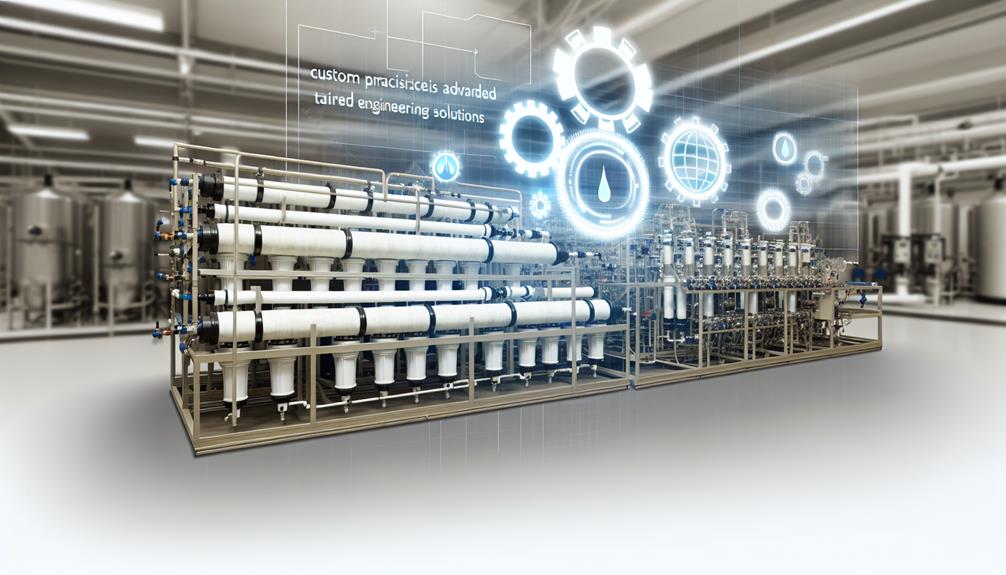
Tailoring to your specific water treatment needs, custom RO solutions providers offer specialized systems designed to meet the unique challenges of your industrial applications. These providers analyze the specific contaminants present in your feed water and the desired water quality output to engineer a reverse osmosis system that's a precise fit for your operation.
When evaluating potential custom RO solutions, you'll need to consider system scalability. This is crucial as your water demand may increase over time, and the system you choose should be capable of adapting to growing production needs without compromising water quality. Hence, a detailed analysis of your current and projected water usage is essential to ensure that the system is neither under-designed, leading to inadequate water treatment, nor over-designed, which could be cost-inefficient.
Moreover, the water quality parameters such as TDS (Total Dissolved Solids) levels, silt density index (SDI), and the presence of specific ions or organics, dictate the pre-treatment processes and membrane selection for your custom RO system. Providers will meticulously calculate the rejection rates required to achieve your water quality standards, which, in turn, determine the system's recovery ratios and flux rates. It's this attention to technical detail that ensures your custom RO solution operates at peak efficiency, delivering consistent water quality while optimizing operational costs.
RO System Maintenance and Support
Once your custom RO system is operational, ongoing maintenance and support become pivotal to ensure its longevity and optimal performance. To extend filter lifespan and maintain high-quality output, you'll need a detailed and disciplined approach to system care.
- Regular Inspections
- Check for leaks or damage to housings and seals.
- Monitor system pressure and flow rates for irregularities.
- Ensure pre-treatment components are functioning correctly.
- Filter and Membrane Maintenance
- Replace pre-filters as recommended to protect membranes from clogging.
- Conduct membrane cleaning with appropriate chemicals at prescribed intervals.
- Record changes in membrane performance to anticipate replacements.
- Support Services
- Schedule routine servicing from your provider's technical team.
- Utilize customer support for troubleshooting and advice.
- Keep abreast of updates or upgrades that could enhance system efficiency.
Innovations in RO Filtration Tech
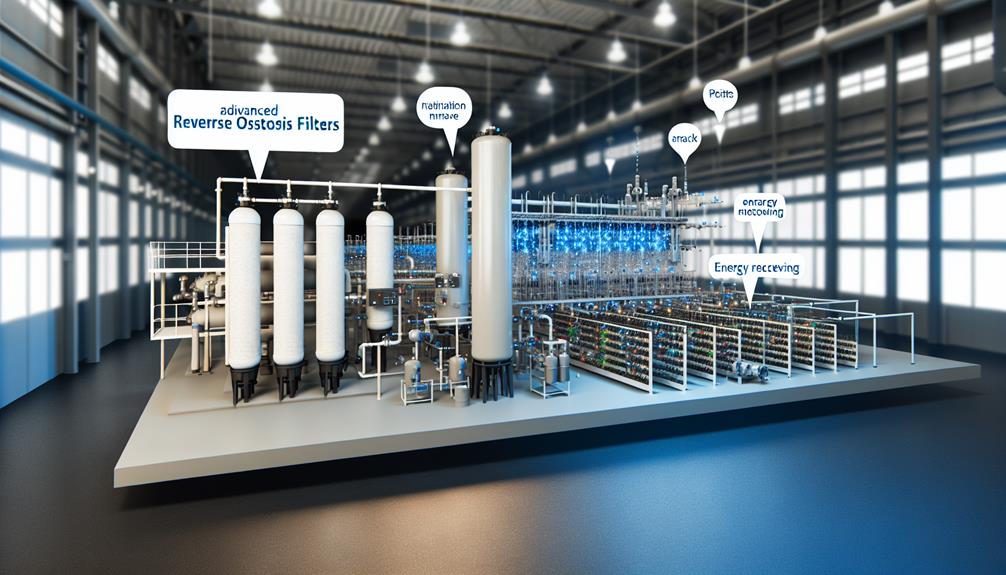
Recent advancements in RO filtration technology have significantly enhanced the efficiency and effectiveness of industrial water purification systems. You'll find that newer models boast increased water recovery rates, a critical parameter that dictates how much of the feed water is converted into permeate. High recovery rates mean less waste, translating to cost savings and environmental benefits.
Moreover, membrane longevity has seen considerable improvements. The lifespan of RO membranes is a key factor in operational costs and system maintenance. Innovations such as more robust membrane materials and advanced fouling resistance ensure that membranes last longer, even under the harsh conditions often found in industrial settings. This results in fewer replacements, reduced downtime, and overall improved system reliability.
Analyzing the technical specifics, you'll appreciate that these advancements stem from both material science breakthroughs and process optimization. The use of novel thin-film composite membranes, for instance, offers superior selectivity and permeability. Additionally, innovations in membrane surface treatments have led to enhanced anti-fouling properties, which play a pivotal role in maintaining membrane performance over time.
Conclusion
In wrapping up, you've learned that selecting an industrial RO system hinges on performance, reliability, and ongoing support.
As you review top manufacturers, consider custom solutions that tailor to your specific needs.
Remember, investing in innovative RO technology can optimize your operations and future-proof your water treatment process.
Stay on top of maintenance to ensure longevity and efficiency, securing the best return on your investment in high-quality industrial water filtration.
